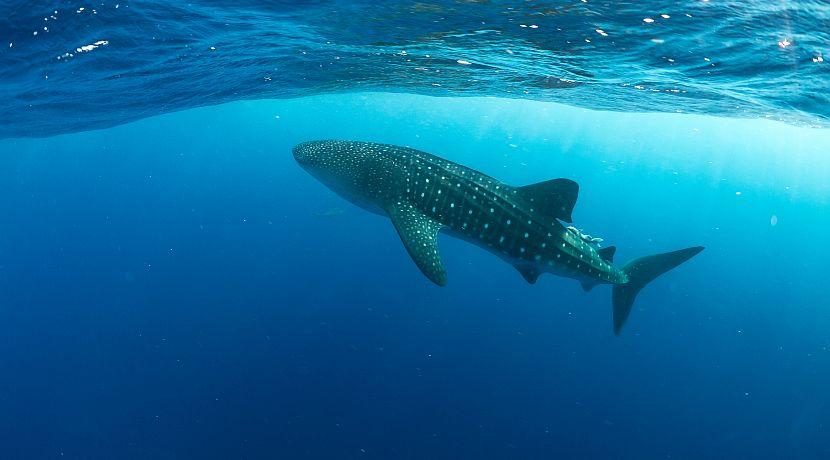Did you know that this Saturday, August the 30th, was International Whale Shark Day?
In celebration, we thought that we would dedicate our blog this week to all things 'whale shark' – including two videos taken at the 'Whale Shark Research Project' in the Maldives as well as a few facts that you might not know!

- Did you know that the whale shark is the largest fish in the ocean? Reaching lengths of 40 feet (12 meters) or more (the size of an average school bus) – they really are the gentlest of giants! The largest recorded confirmed individual had a length of 12.65 m (41.50 ft) and a weight of more than 21.5 metric tons (47,000 lb), though there are reports of even larger ones gliding through our oceans – pretty incredible stuff!
- Despite their size, whale sharks diets purely consist of small fish, krill and plankton. They are only one of three species of 'filter feeder' sharks (which also include the UK's resident Basking Shark and the extremely rare Megamouth shark) and feeding occurs either by ram filtration, in which the animal opens its mouth and swims forward (subsequently pushing water and food into the mouth), or by active suction feeding, in which the animal opens and closes its mouth (sucking in volumes of water that are then expelled through the gills).
- Preferring warmer waters, whale sharks populate all of the tropical seas. They are known to migrate throughout the oceans in their search for food sources, though year-round populations are found in areas like the Maldives (the site of the Whale Shark Research Project) or Tanzania (the site of one of our newest projects - the Mafia Island Whale Shark Conservation Project).

- The Maldives are in fact one of the prime locations in which to catch sight of these magnificent animals – it is estimated that the South Ari Atoll has one of the most extensive populations anywhere on earth makin it an extremely popular destination to go swimming with whale sharks.
- The whale shark is considered a vulnerable species by the IUCN. Though its population is unknown, it is targeted by commercial fisheries in several areas where they seasonally aggregate. It is subsequently listed, along with six other species of sharks, under the CMS Memorandum of Understanding on the Conservation of Migratory Sharks.

- The work done at the 'Whale Shark Research Project' is essential in helping to understand these majestic animals and help develop key conservation initiatives towards the protection of the species within the wider Maldives region. Having documented (via ground-breaking satellite tagging and DNA analysis programmes), over 3000 encounters with whale sharks, the team have identified over 208 individuals, cataloguing them into a worldwide database and making some interesting and vital observations of the whale sharks that aggregate in South Ari Atoll.
If you would like to join a once-in-a-lifetime experience on a whale shark project, then please don't hesitate to 'Enquire or Book Now' via our website page. Alternatively, if you would like any more information about our whale shark projects as a whole or about whale sharks, then please don't hesitate to contact us via email ([email protected]), Facebook or phone (+44(0)208 885 4987).















